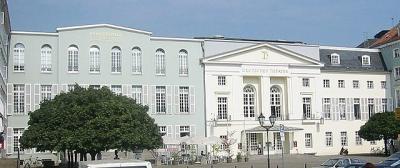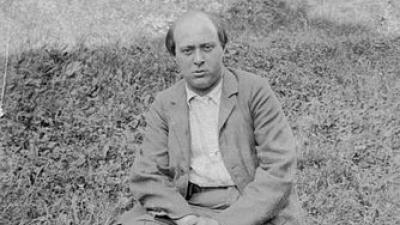It is not difficult to criticize the theatre landscape based on the programs offered. However, when the discussion turns to cultural life, other questions are usually addressed. In particular, representatives of vulgar populism often mention the costs of theatres, orchestras, and other cultural institutions, usually with fervour that allows no further discussion. Two examples: Julian Reichelt ridiculed the work of a Green Party member of the Bundestag who worked as an assistant director but ignored her lack of education. Recently, CDU politician Carsten Linnemann spoke about reducing broadcasting fees and suggested closing of broadcasting orchestras, barely touching upon the real problem of public broadcasting, which is biased reporting with a clear preference for the left-wing political spectrum.
These two cases demonstrate that economic issues dominate discussions on culture in the so-called bourgeois camp. This poses a great danger because while fee increases and decreases come and go, there are essentially two options for art: it is either present (mainly through museums, theatres, concert halls) or disappears. Currently, the latter seems more likely, especially due to the abandonment of two pillars that once gave it relevance: entertainment and discourse. More precisely, both aspects have been stretched to the limit, so today entertainment means mostly comedy (or an approximation to popular culture), and discourse involves engaging with contemporary topics. Such theatre actually caters for a very limited audience, and empty seats become an easy target for free-market policies that have always been a thorn in the side of true conservatism, which theatre ultimately represents.
This may already indicate that cultural institutions are under pressure from various sides. While (formerly) conservative forces attempt to address cultural heritage with numbers, there is also growing pressure from the left-wing camp, whose ideas often find grateful acceptance among theatre practitioners. Cultural policymakers in the corresponding parties view theatres and opera houses with suspicion and no longer see them as places of deep humanity ("Wem der große Wurf gelungen...") and intellectual depth ("Wort, du Wort, das mir fehlt"), but rather as crime scenes. The blame is assigned almost everywhere: to the titles of works by German expressionist artists, to the libretti of baroque operas, and to the biography of Mozart, who was branded as a "racist" by the Faculty of Music at the University of Oxford. One could argue that such ideas originate in seminars in the humanities and social sciences and do not necessarily have to affect artistic practice. This may seem true at first, but upon closer inspection it turns out naive because most decision-makers in the cultural landscape are graduates of such fields belonging to the faculties of humanities. Besides fields of study like German studies, theatre, and literary studies, there are also some niche disciplines, and it is not unlikely that Critical Race Theory and Gender Studies will be added soon.
Consequently, the effects on the art scene are predetermined and already noticeable. Pronounced xenophilia is often accompanied by increased scepticism towards Europe's cultural heritage. An opera set in Latin America by Henry Purcell can no longer bear its original title (The Indian Queen), while Alban Berg's Wozzeck is often questioned not for its philosophical questions (free will, mind-body problem), but for its depiction of femicide – which is, of course, nothing more than the result of Wozzeck's humiliating treatment. Subplots are centred upon, and the original ambitions are abandoned. Bizet's Carmen, a cornerstone of the repertoire, is now primarily discussed in terms of gender roles (accompanied by the particularly innovative idea of having men appear in women's costumes and vice versa).
Theatres and opera houses have always been counter-worlds, places that posed aesthetic challenge and could become a thorn in the side of discourse. However, at present, some houses adorn themselves with the so-called Pride flag, a symbol that can be seen in front of almost every branch of a major supermarket chain in Germany.
As regrettable as the state of theatres is, it is partly due to the fact that the bourgeois or conservative camp has long been disinterested in those institutions. The same applies to the media institutions where conservative voices also seem to have disappeared. In contrast, the left-wing camp is indeed interested in theatres and opera houses, and never tires of appropriating them for its own agenda. One only needs to look at the numerous activities of the Heinrich Böll Foundation, closely linked to the Green Party, in the field of cultural institutions and their acceptance among theatre employees, especially in the artistic areas of directing and dramaturgy. This serious oversight has far-reaching consequences for both the stages and public media and should be corrected urgently. However, which party in the bourgeois or conservative spectrum has a genuine interest in the content of the art world? Economic issues seem to have completely overshadowed any engagement with cultural values, resulting in the fact that only the topics that can be unilaterally associated with the current zeitgeist are addressed.
The significance of theatre as a place for nurturing the concept of Western art will only improve when it again refers to this concept. The composer Ernst Křenek (1900-1991) coined the phrase "conservative and radical," which could be fruitful again today. He understood that the most radical and daring artistic tendencies developed in a conservative framework. A quote from one of his essays from the 1930s could be just as relevant for the present time: "From this perspective, we can confidently assert that this intellectual rejuvenation, which is related to the reflection on the essentially Christian state of the Western world, should be seen as cultural progress, while wherever materialistic content strives for prevalence under any accidental political sign, one can only observe reaction."
Read also
Conservative and Revolutionary: About Arnold Schoenberg
To the occasional listener of symphony concerts, Arnold Schoenberg (1874-1951) is generally known as one of the boldest modernists in the history of music. Surprisingly, however, for many people who delve deeper into his biography, it becomes clear that he was anything but politically progressive.








Comments (0)